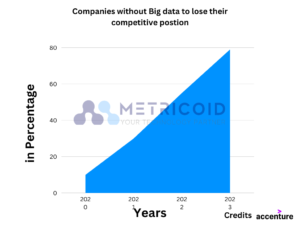Overcoming the Challenges of Building Global Logistics Software Solutions

The logistics industry, in an era of globalization and rapid digital transformation, requires software solutions that effortlessly cater to global operations. Building such robust logistics software solutions comes with its unique set of challenges, from navigating diverse compliance standards, integrating with local systems, grappling with geographical complexities, and ensuring the solutions are scalable and adaptable.
Table Of Contents
Navigating Global Compliance Standards
Compliance is one of the most significant roadblocks in the development of logistics software for worldwide operations. Compliance standards differ greatly from one location to the next, spanning a wide range of topics such as data privacy rules, customs regulations, and tax laws. It can be difficult to create a software system that can handle these variations while also providing smooth responsiveness to quick regulatory changes.
Such a software needs to have a dynamic, rules-based engine that can adjust to the regulatory environment of each country where it is deployed. Leveraging artificial intelligence (AI) and machine learning (ML) to automate the monitoring and application of these ever-evolving rules can help companies maintain regulatory compliance without compromising operational efficiency.
Integrating with Local Systems and Technologies
A worldwide logistics software solution must be able to seamlessly interface with multiple local systems. Different nations or regions may use different third-party solutions and technology for logistics operations, resulting in significant operational disparities. Language and monetary variations add another element of complication.
To deal with these challenges, the software solution must be flexible enough to accommodate these differences, and robust enough to interface seamlessly with a wide array of technologies. A well-designed API can enable your software to interact efficiently with diverse local systems, thus ensuring the integrity and real-time nature of your data.
Addressing Geographical and Time-Zone Challenges
Global operations are characterized by geographical dispersion and different time zones, which can cause communication and coordination issues. A global logistics software system must manage these issues efficiently, guaranteeing real-time updates and easy interdepartmental collaboration.
Advanced features such as real-time tracking, instant notifications, and cloud-based collaboration tools can enable the software to maintain effective communication and coordination across geographically dispersed teams. Additionally, a well-designed user interface can help users across different time zones interact with the software more effectively.
Ensuring Scalability and Adaptability
Scalability is a crucial aspect of any software solution, especially in the dynamic and fast-paced world of global logistics. The software must be robust enough to handle growth in operations, adaptable to changing market conditions, and capable of integrating new features or functionalities as required.
Cloud computing technologies offer an effective solution for these scalability and adaptability challenges. With cloud-based solutions, businesses can easily scale their operations up or down based on demand, without worrying about server capacity or infrastructure limitations.
Leveraging AI and Machine Learning
The use of AI and ML in logistics software solutions can significantly enhance their ability to overcome these challenges. These technologies can automate complex processes, optimize routes, predict demand, and provide real-time visibility into operations, among other benefits. By implementing these technologies, businesses can improve operational efficiency, reduce costs, and increase customer satisfaction.
The Power of Data Analytics in Logistics Software
Aside from the obvious operational issues, another critical component of logistics software development is dealing with massive volumes of data collected from various sources all over the world. These data points reveal information on client behavior, operational inefficiencies, market trends, and other topics.

A study by Accenture revealed that 79% of enterprise executives agree that companies not embracing big data will lose their competitive position and could face extinction. To turn this immense volume of data into meaningful insights, modern logistics software incorporates powerful data analytics capabilities.
Data analytics allows businesses to make informed decisions based on data-derived insights. It can help identify bottlenecks in the supply chain, optimize routes, predict future trends, and even automate certain decision-making processes. By integrating data analytics, logistics software can provide comprehensive and valuable insights that drive strategic decisions and operational efficiency.
Having discussed these challenges and the technologies that help address them, it’s clear that building logistics software for global operations is a complex but surmountable task. With a deep understanding of global regulations, a robust integration strategy, the ability to navigate geographical and time-zone differences, and a strong focus on scalability and adaptability, companies can rise to the challenge. Additionally, leveraging advanced technologies such as AI, machine learning, and data analytics, businesses can not only overcome these challenges but also turn them into opportunities for growth and innovation. With this approach, the development of effective, efficient, and scalable logistics software solutions becomes a reachable target.
The Impact of Cybersecurity on Global Logistics Software
In an increasingly digitized world, cybersecurity has emerged as a critical concern for all software solutions, and global logistics software is no exception. Cyber threats can compromise not just the integrity of the software, but also the sensitive data it manages, potentially resulting in significant financial and reputational damage.
To address these risks, logistics software must incorporate advanced cybersecurity measures, from data encryption and secure access controls to intrusion detection systems and regular vulnerability assessments. This becomes even more critical considering that the software has to interact with numerous third-party systems and handle sensitive data across different regions, each with their own cybersecurity standards and potential threats.
Moreover, global logistics software should not just protect against current threats, but also anticipate future ones. This requires regular updating and patching of the software, as well as staying abreast of the latest developments in cybersecurity.
Sustainability and Eco-Friendly Considerations
In the wake of increasing environmental concerns, sustainability has become a pivotal consideration in all business operations, including logistics. Consequently, the design and functionality of logistics software must take into account environmental factors.
For instance, logistics software can use AI and data analytics to optimize routes and decrease fuel consumption, thereby reducing the carbon footprint of logistic operations. Similarly, by improving warehouse efficiency and reducing wastage, software solutions can contribute to more sustainable operations. This environmental consciousness is not just beneficial for the planet but can also enhance the company’s reputation and appeal to an increasingly eco-aware customer base.
Incorporating cybersecurity measures and environmental considerations into global logistics software, therefore, adds another layer of complexity to its development. However, these considerations are crucial for building a comprehensive and future-ready software solution.
In conclusion, building logistics software solutions for global operations is a complex task, with numerous challenges to navigate. By leveraging advanced technologies and adopting a forward-thinking approach, businesses can overcome these challenges and develop effective, efficient, and scalable logistics software solutions.






